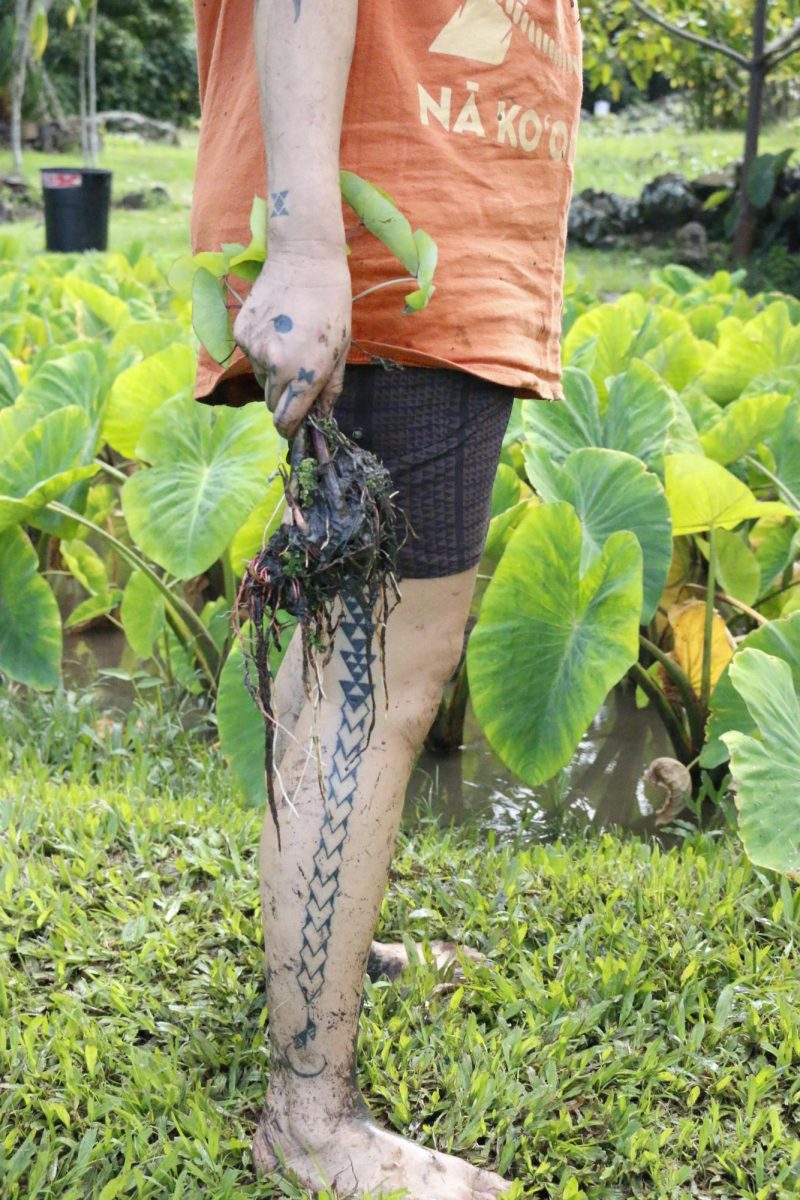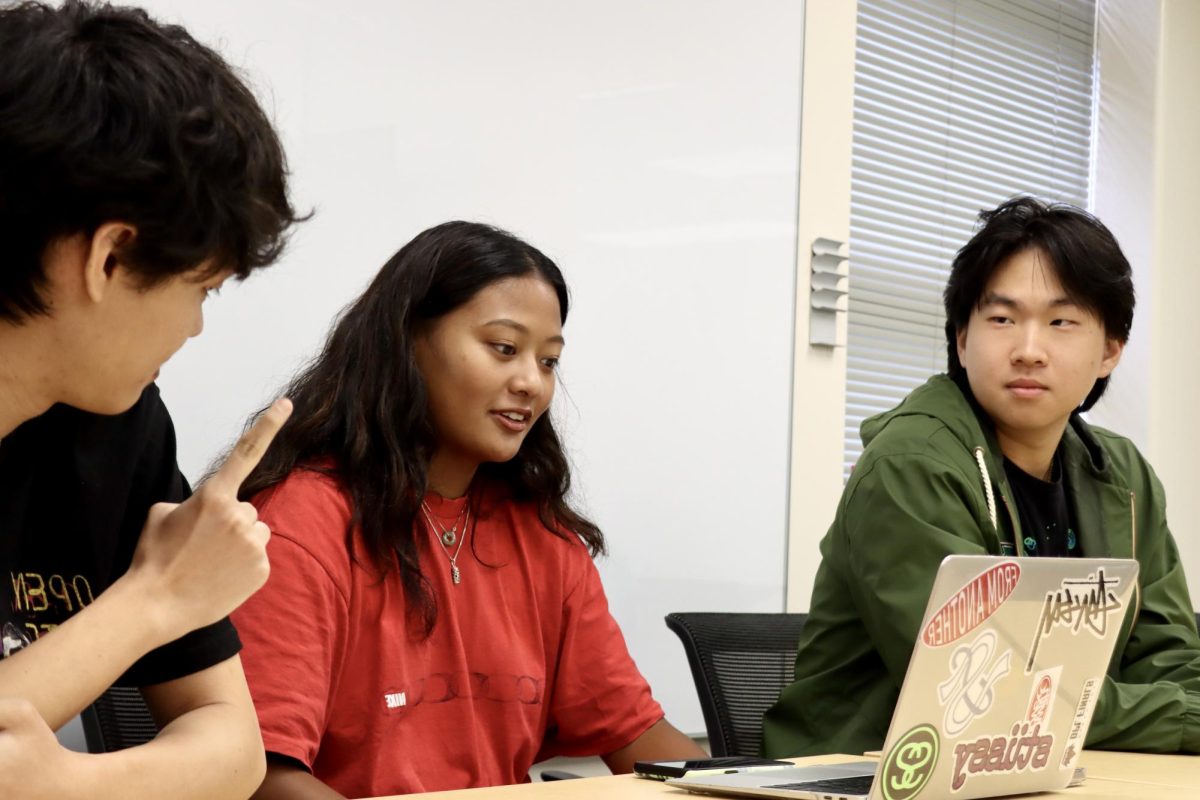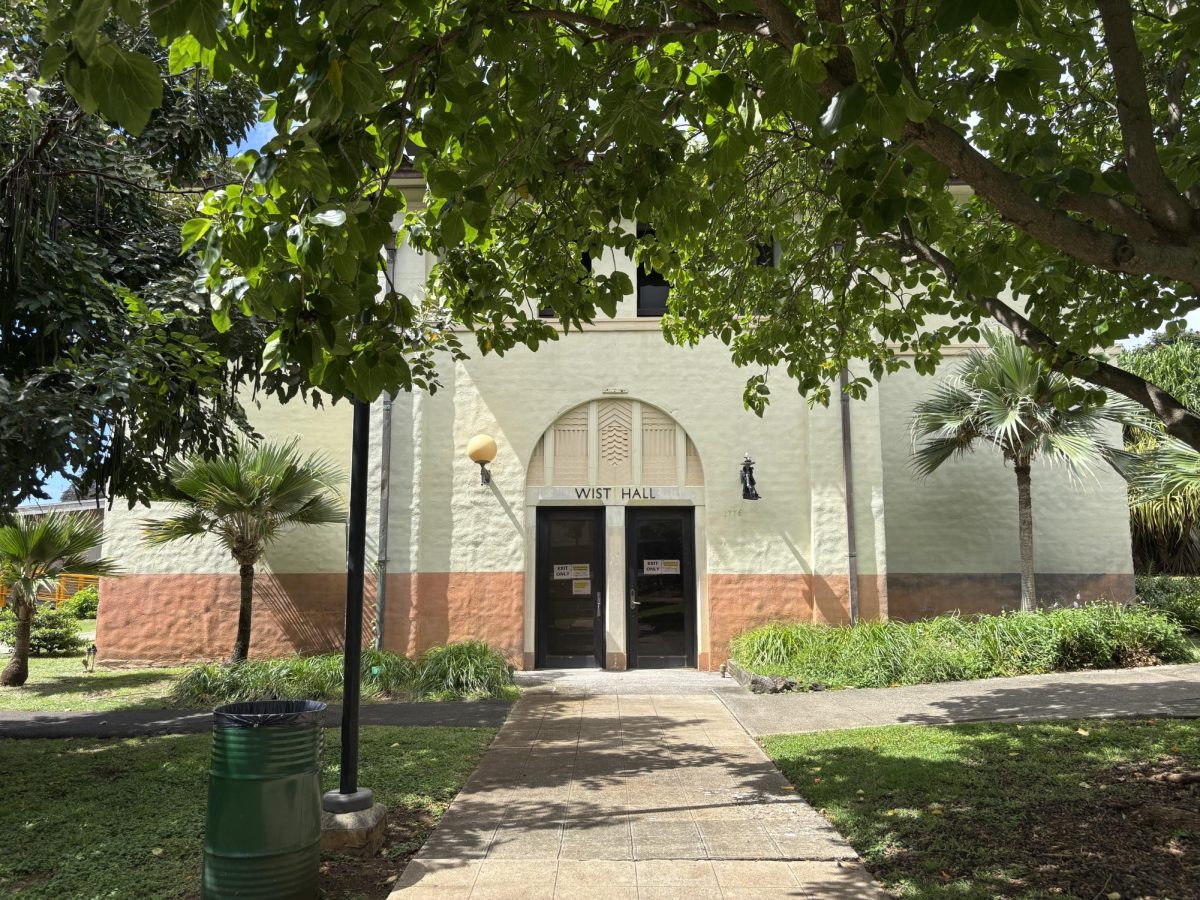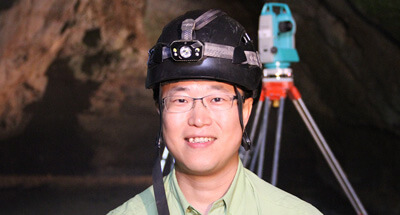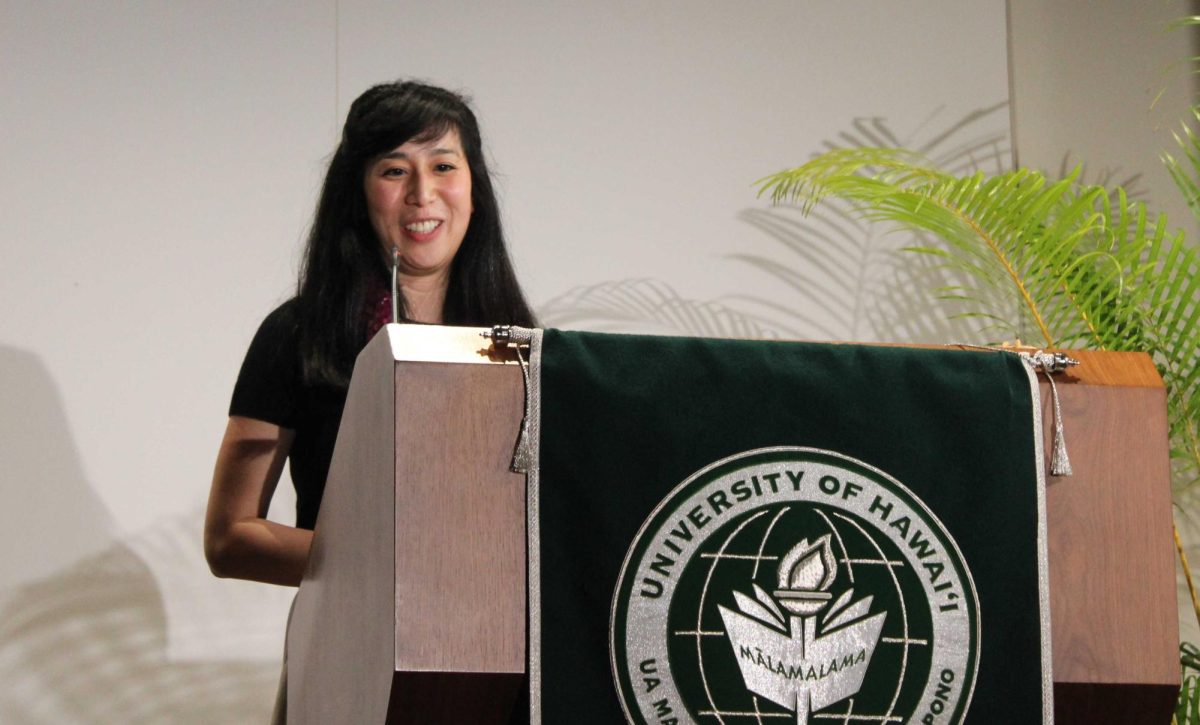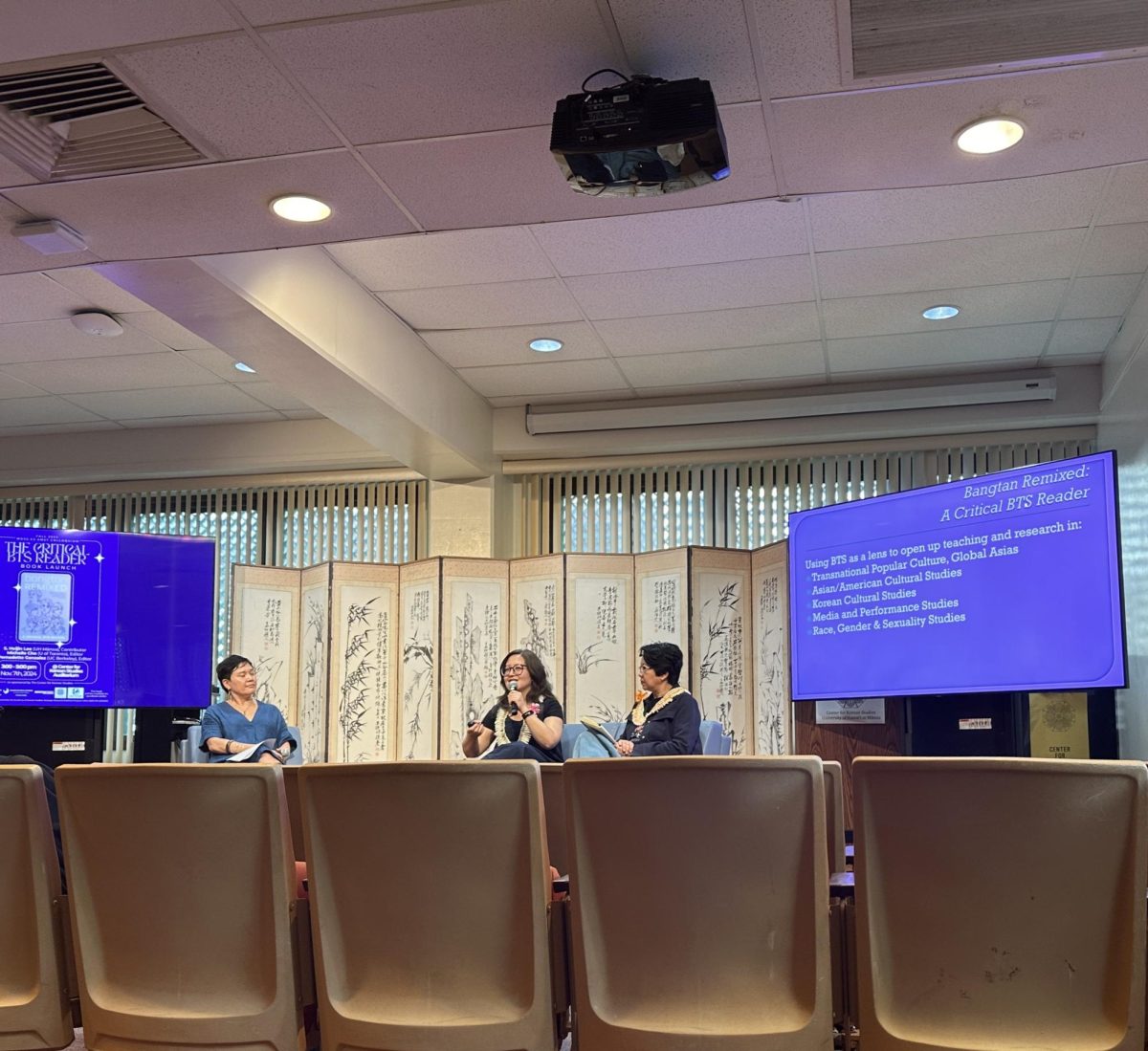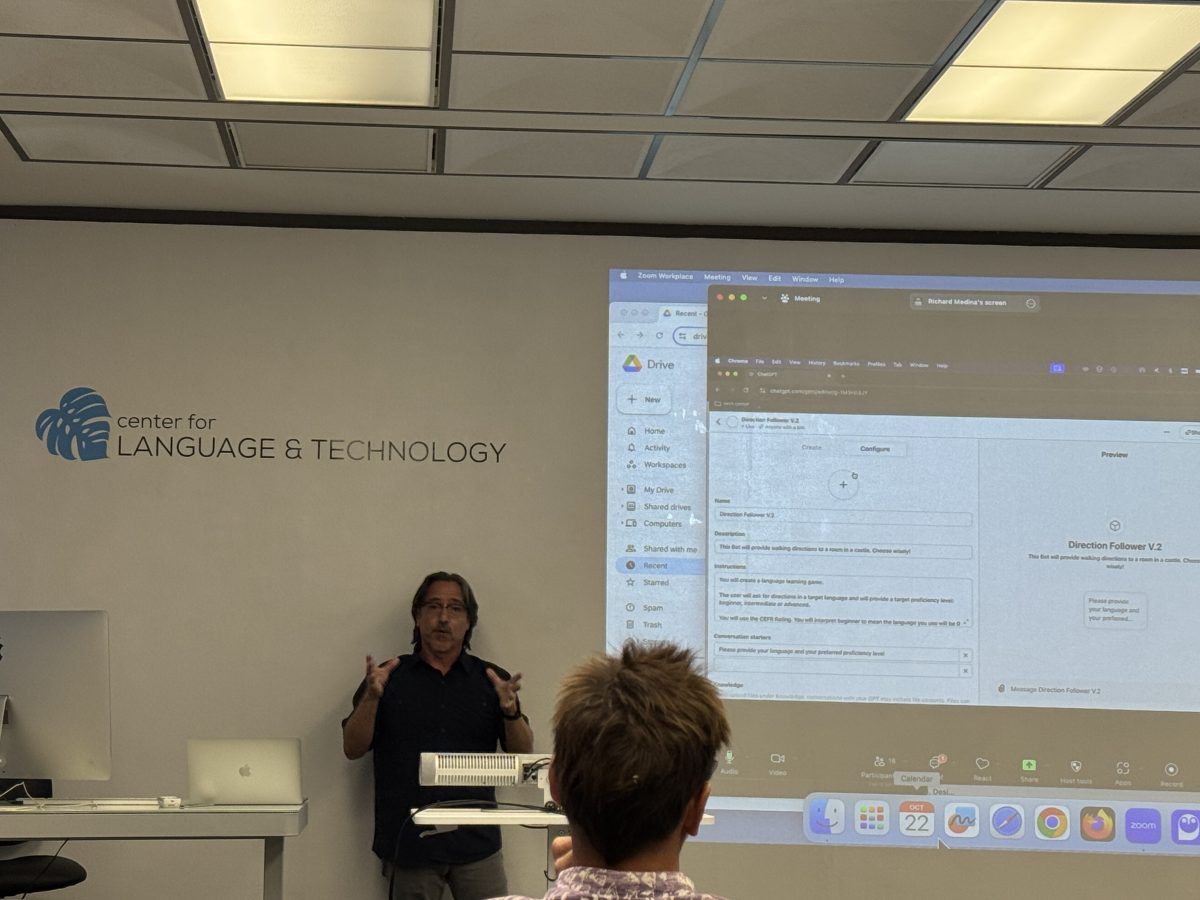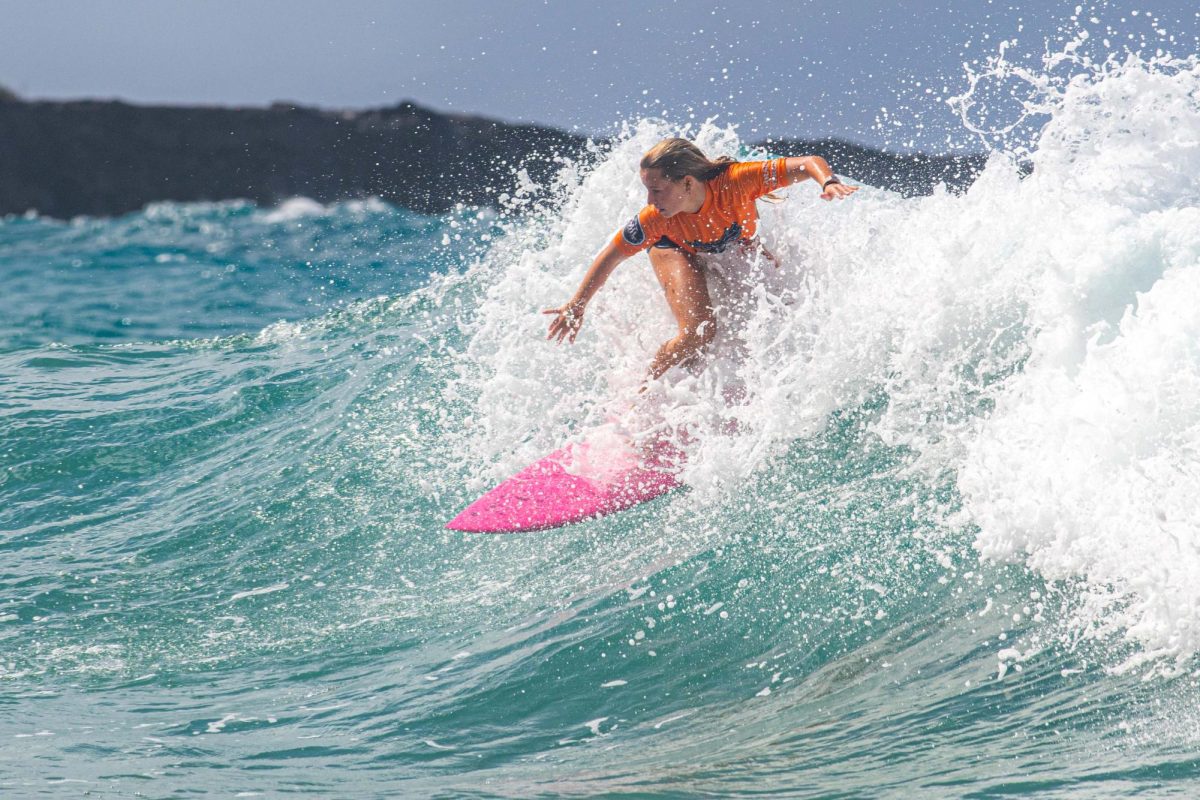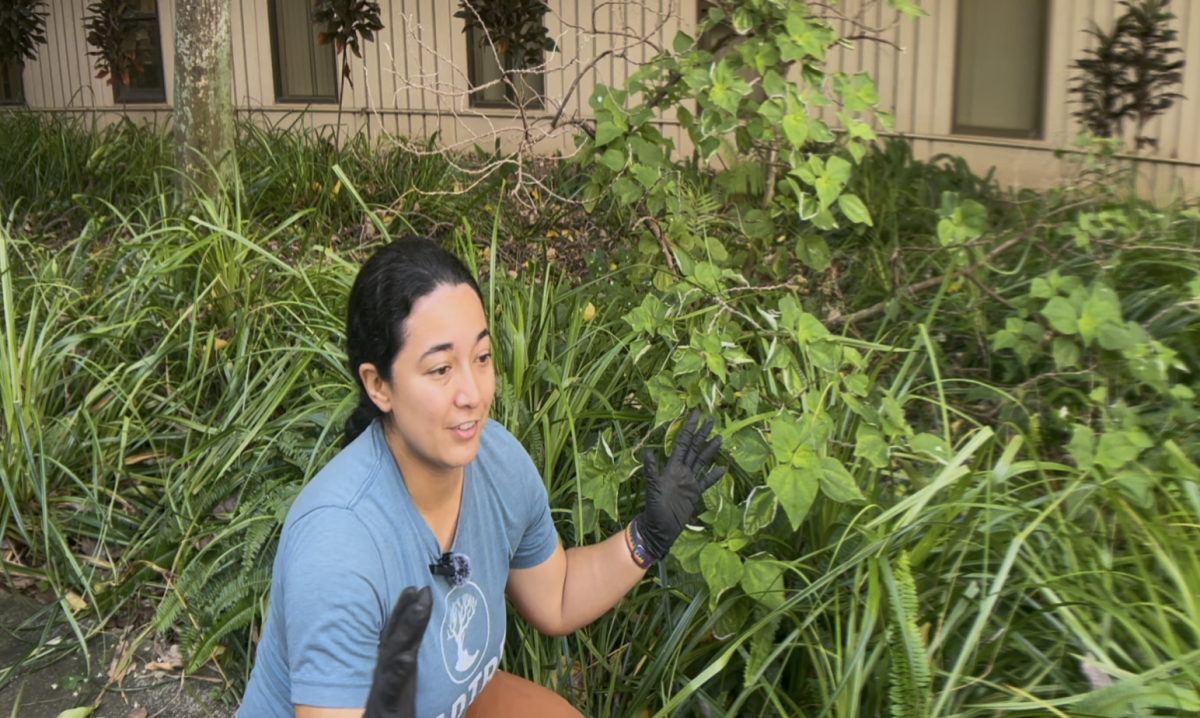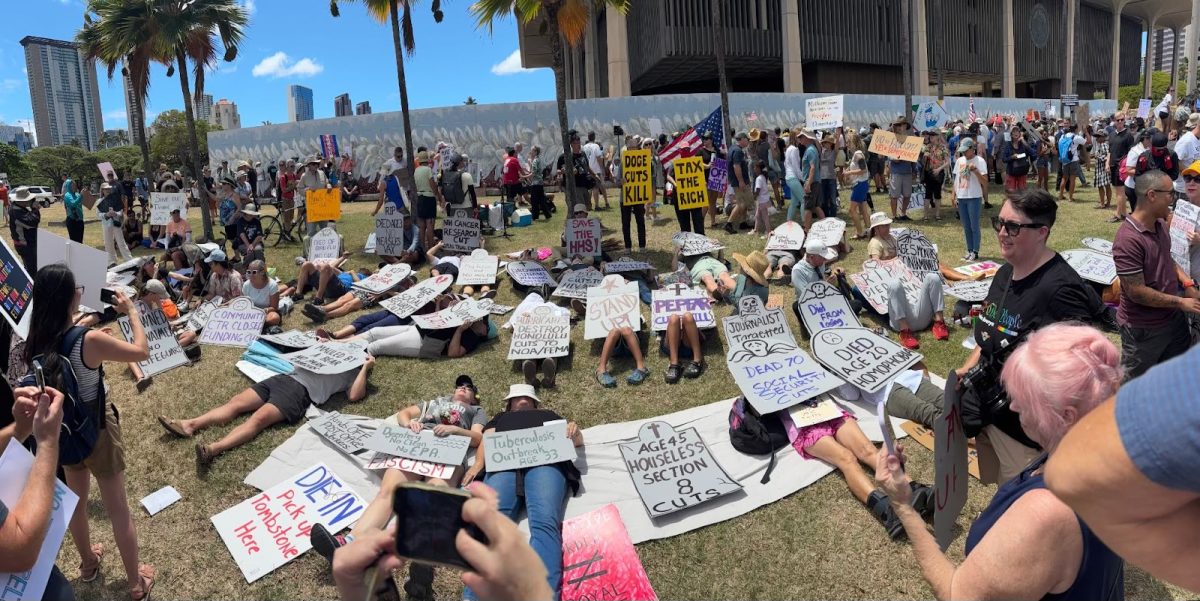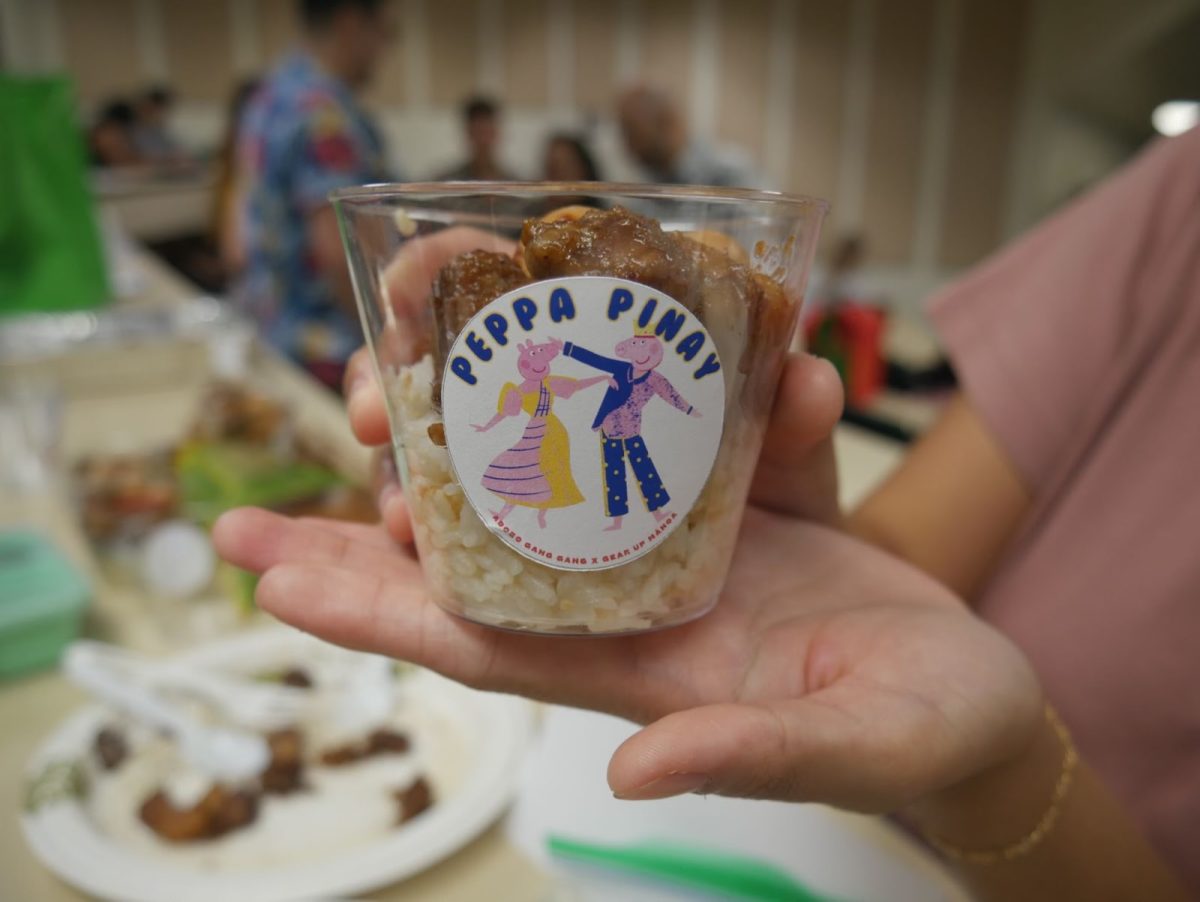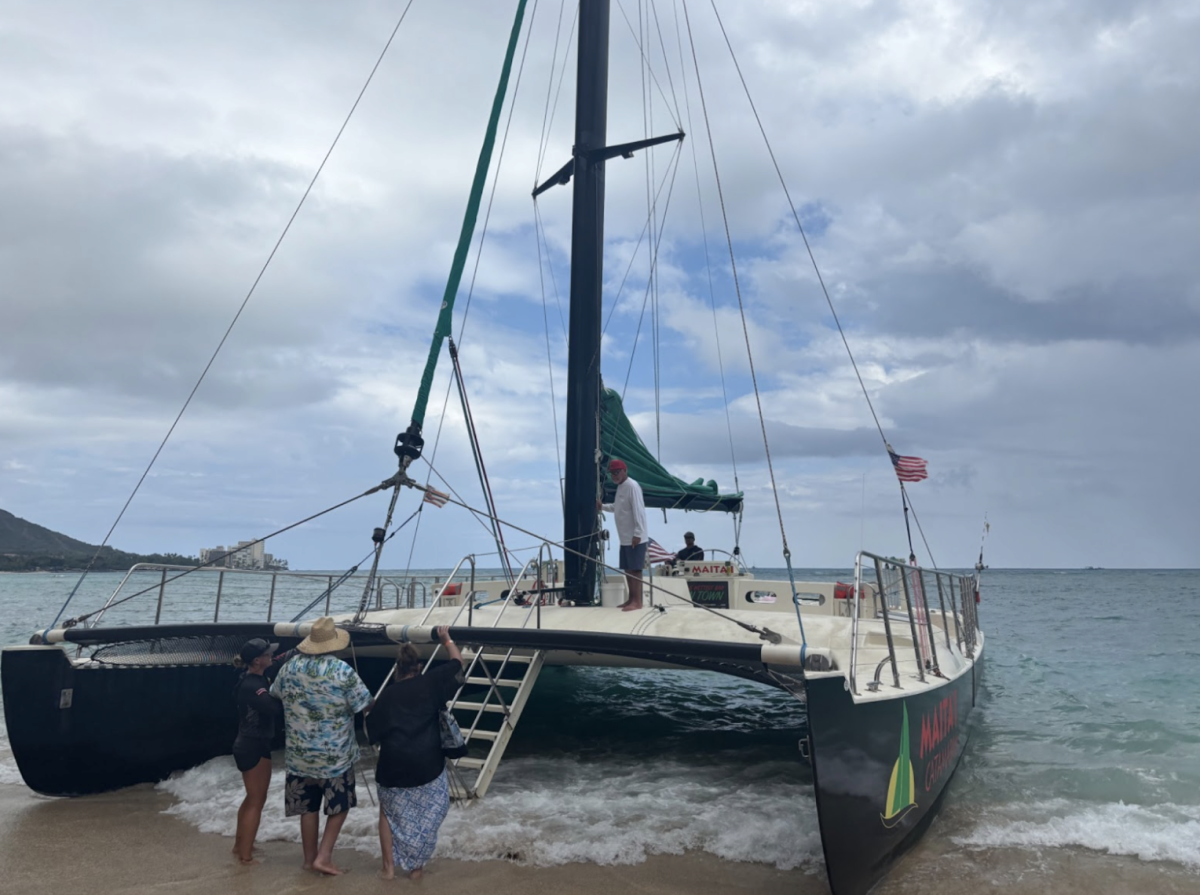Keisha Tanaka grew up in a melting pot of ethnicities. Despite her not feeling entirely connected to her Hawaiian roots, the 29-year-old’s long journey in finding her career sparked a passion to help her community through sustainability and activism, igniting a renewed connection to her culture and identity.
Tanaka grew up in a household full of love, music, food and people, with an upbringing around her uncles, aunties, and both sets of grandparents. Learning life lessons from her kūpuna or elders, they instilled an essence of ‘Ohana’ (family), shaping the person she is today. Tanaka says that because her kūpuna have lived through it all and have seen everything that life has to offer, they have rational outlooks and perspectives on life.
When Tanaka’s dad was stationed in Virginia for the military, her grandmother, or Oma as she called her, gave her a lesson that continues to stick with her.
“I was telling my Oma about a friend that said ‘I’m so sad you’re moving, like I’m so mad at you.’ She [Oma] said, ‘They should be happy for you. They should be super excited that you’re having this wonderful opportunity,’” Tanaka said.
Tanka’s ethnic background is a “really fun game” as she describes it. She is a mix of Japanese, Chinese, Okinawan, Filipino, Spanish, Hawaiian, and Māori.
Despite her diverse ethnic background, she felt she was not Hawaiian enough, whether due to her lineage, physical appearance, or the lack of experiences that she was supposed to encounter to align perceptions of what it meant to be Hawaiian.
All of her cousins got accepted into Kamehameha Schools, a private school for students with Hawaiian ancestry, or participated in the Merrie Monarch Festival, a cultural festival that showcases many performances through song and hula.
Tanaka felt as though a lot of the families around her were immersed in Hawaiian culture except hers.
“I think that just comes with a lot of the generational trauma from just our annexation in Hawaii, just all of that history in Hawaii. And I just learned to kind of overcome that for myself,” Tanaka said.
After high school, Tanaka attended George Mason University in Virginia, and graduated with a bachelor’s degree in marketing and a minor in theater.
She worked different jobs at a radio station, as a waitress at Ruby Tuesdays, and had a life-changing opportunity to work in New York as a merchandise manager on Broadway in New York, in addition to working as an executive assistant to Daryl Roth, who won 13 Tony awards and produced broadway shows like Kinky Boots.
Although, as much as Tanaka loved being able to work on Broadway and witness the stories that were being told, she said she felt as though they were not as important to her as other stories that needed to be told.
“I want us to invest more in our own stories that are locally based,” Tanaka said. “Tell those stories.”
She then moved back to Hawaiʻi around the time when the pandemic hit, taking care of her great-grandmother, who was 101 years old at the time. Tanaka drew inspiration from her for her longevity and activeness.
“I noticed her being active and eating good food and just being outside with gardening, and I was like: maybe I should go do that,” Tanaka said.
Prompted by her great-grandmother’s lifestyle, Tanaka joined Kupu, the largest non-profit organization for youth sustainability programming in Hawaiʻi. She participated in their hiring program called Kupu Āina Corps, working at Ulupō Heiau, the largest and oldest Heiau on the island of Oʻahu, under Kauluakalana, another non-profit organization that reunites workers to the land in restoration and education.
Ulupō Heiau spans ten acres of Loʻi, banana, fish ponds, and farmland. In her role, Tanaka spent her time working on conservation projects to promote cultural practices and values using traditional farming and fishing techniques. Given that Hawaiian culture and identity are mostly rooted from the land and its stories, this experience served as a meaningful way for Tanaka to reconnect with her identity and culture.
“I unlearned so many traumas and generational traumas, a bite of my ethnicity and my people, my identity that I have been holding for close to 30 years.” Tanaka said.
As she became more involved with Kupu, she became a Program Coordinator where she planned and prepared program projects.
One of the programs she was involved in was called the Conservation Leadership Development Program which was meant for 18 to 25-year-olds. The goal of this program was to create a career pathway in conservation and sustainability and bring community and people together to make the island a livable place in the future.
Kepa Barrett, an External Affairs Officer for Kupu, witnessed Tanaka’s growth and impact throughout the community and through her Hawaiian identity.
“It’s not like she’s doing it for the credit of putting it on a resume,” Barrett said. “It’s not like she’s doing it because she needs that additional experience. It’s because she knows it’s the right thing to do. And that’s one of the things that I really admire about her.”
Tanaka and Barrett usually have deep conversations about their culture during work. One conversation they had in particular was about the Ala Niho, a traditional Hawaiian leg tattoo. Hawaiians would get an Ala Niho when they turned 16 years old, to guide them into adulthood.
“It is a symbol of her ancestry and her Hawaiian heritage that I think she has opened up to me very candidly that she didn’t think that she would have gotten this had she not had the experience at Kupu,” said Barrett.
Tanaka now works as an External Affairs Officer alongside Barrett where she develops partner relations and social media content for the organization. Outside of Kupu, Tanaka makes her mark through activism, spreading awareness on Instagram or going out to protests.
“I’ve always been kind of an activist. My mom raised a radical,” Tanaka said.
Free Palestine, Mauna Kea, LGBTQ+ and Black Lives Matter are some of the protests that she has been involved in on the island. Through Instagram, she provides tons of stories and reposts information for people to join and also speak up about different issues.
“The more people see it, it’s okay to speak up, the more they feel like it’s okay that I speak up. Yes, it is for Instagram, so you know, we can all share, but I think the more that we’re vocal and the more that we stand up for what’s right, I think it tells other people it’s okay”, said Tanaka.
Tanaka sees how broken this system is and is using her voice to enable change. While she acknowledges the supportive system she has had, she wants to focus on being proactive in addressing them.
“I want to be preventative,” Tanaka said. “I don’t want them (people) to have to come afterwards because the system is broken to figure out what’s in it. I want to have a system that works for everybody.”


